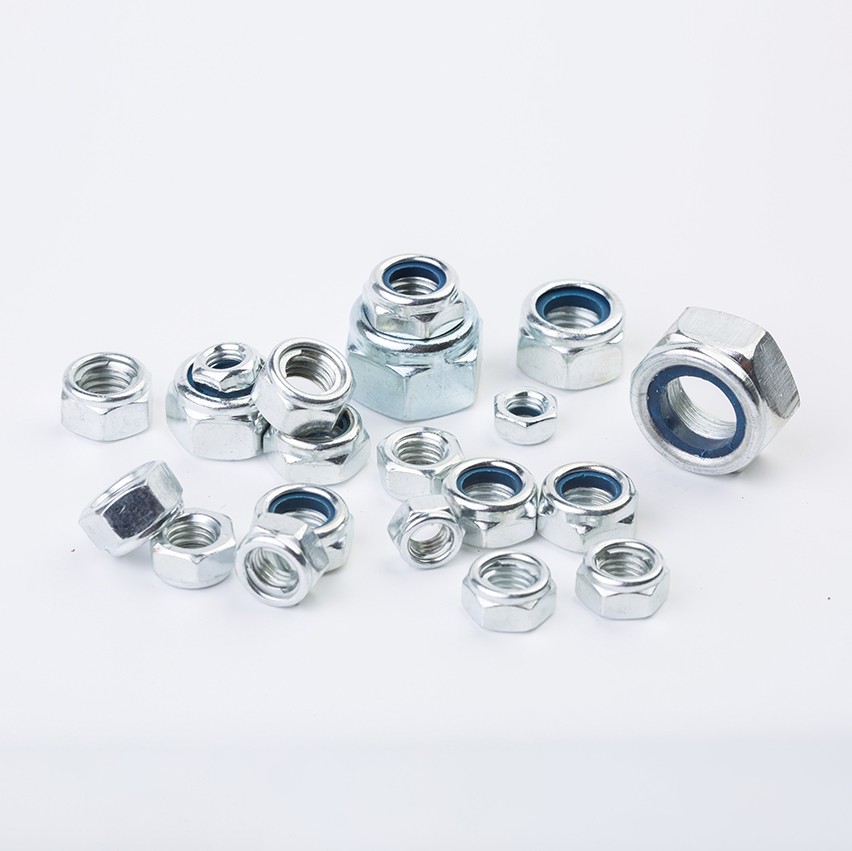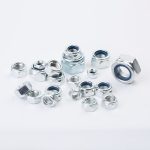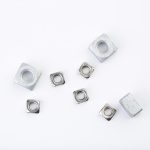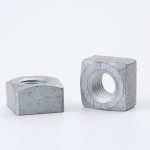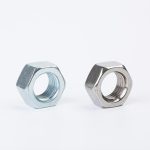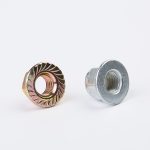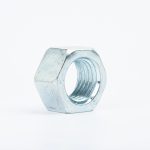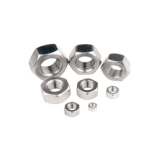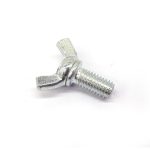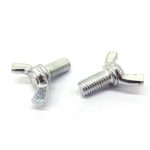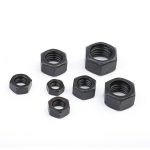Nut
Product Introduction
A nut is a nut, a part that is screwed together with a bolt or screw for tightening. It is a component that must be used in all manufacturing machinery. According to different materials, it is divided into several types such as carbon steel, stainless steel, and non-ferrous metals (such as copper).Nuts are used in a wide range of applications, including: construction machinery, wind power equipment, agricultural machinery, foundry industry, drilling equipment, shipbuilding industry, military, mining equipment, etc.
Classification
- Hex nuts:
Hex is short for hexagon, which refers to the six sides of the nut. These nuts have internal threads and are typically used with machine-threaded bolts and screws and are available in carbon and stainless steel, brass, and more.
- Hex flange nut:
A flange nut is a nut that has a wide flange at one end that acts as an integrated washer. This serves to distribute the pressure of the nut over the part being secured, reducing the chance of damage to the part and making it less likely to loosen as a result of an uneven fastening surface. These nuts are mostly hexagonal in shape and are made up of hardened steel and often coated with zinc.
Flange nuts (and bolts) are widely used in automobiles and electronic products.
- Wing nut:
Wing nuts are a type of nut shaped like a butterfly. According to the process, it can be divided into cast wing nuts, stamped wing nuts, etc.
- Cap nut:
As the name suggests, the cap nut is a hexagonal nut with a cover. The function of this cover is to fasten the exposed part on the outside to prevent moisture or other corrosive substances from entering inside, thereby preventing rust, thereby improving itself and the connecting parts. usage time.
- T-nut:
A T-Nut is a nut used to fasten wood, granular or composite workpieces, leaving a flush surface. Its main body is slender, with a flange on one end and a T-shaped shape. The flange of a T-nut usually has hooks or serrations on the prongs that dig into the wooden workpiece when the bolt is tightened from the other side of the workpiece, providing better retention.
Characteristics and Advantages
Nuts play a key role in fastening and connecting other parts or objects in mechanical manufacturing. It is often used in conjunction with nuts and bolts to ensure that parts are securely held together. This fastening effect not only improves the overall stability of the machinery, but also makes the equipment more reliable during operation. Especially in automobile manufacturing, nuts are widely used in external structural parts of automobiles due to their tightening and stable properties, ensuring the integrity and safety of the automobile structure. Generally speaking, nuts are indispensable fastening elements in mechanical manufacturing.




